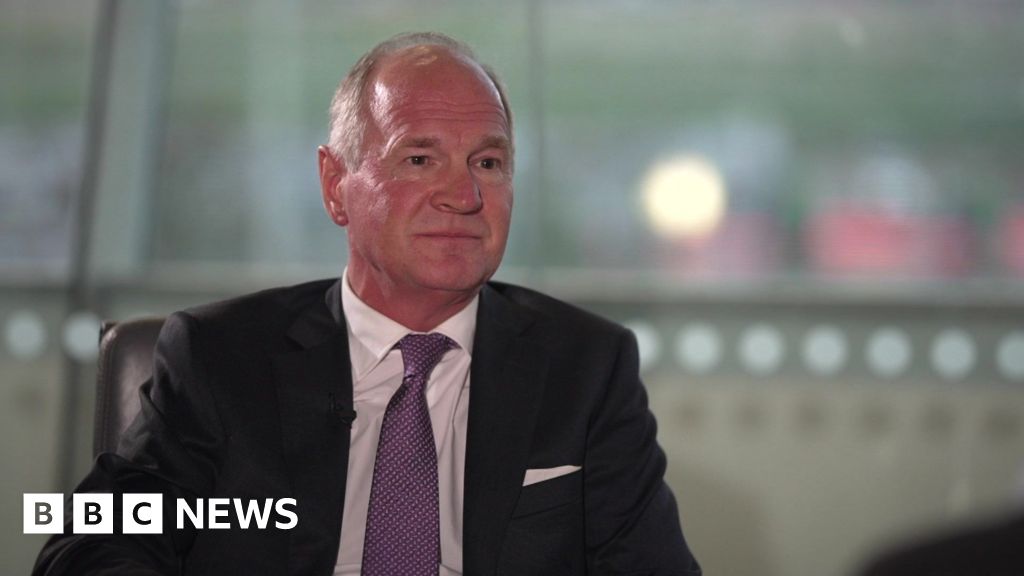Unlock the Editor’s Digest for free
Roula Khalaf, Editor of the FT, selects her favourite stories in this weekly newsletter.
Syria’s new government has triggered outrage after introducing an overhaul of the education curriculum that critics argue will impose an Islamist agenda on school students.
Anger spread after the ministry of education this week published 12 documents listing adjustments and omissions to the schoolbooks of topics including Arabic, history, sciences, social studies and religion.
Most changes involved removing references to the regime of ousted president Bashar al-Assad and his late father Hafez, who between them ruled with an iron fist for five decades, such as photographs and mentions of the army and national anthem.
But authorities also alarmed many by removing references to pre-Islamic deities — and even the word “deities” itself — and scaling back criticism of the Ottoman Empire. Also omitted were the text for Syria’s citizenship law, a section on the evolution of vertebrates’ brains, and mention of Zenobia, a famed pre-Islamic queen of the ancient city Palmyra.
Critics feared the changes represent a slippery slope in which the Islamist rebel faction Hayat Tahrir al-Sham, which dominates the new government, would seek to impose their religious worldview on what has long been one of the Middle East’s most secular countries.
“The erasure of the defunct regime’s glorification is understandable, but deleting historical facts and events from our people’s struggle, and milestones of ancient civilisations . . . [is] not a coincidence,” Rima Flihan, a Syrian writer and human rights activist, wrote on Facebook. “Therein lies the danger.”
Bassam al-Kuwatli, president of the anti-Assad opposition Syrian Liberal Party, or Ahrar, said the caretaker government should not be decreeing such big, non-urgent changes to implement “something that suits it ideologically”.
While removing Assad’s legacy “is not controversial”, he said, the reforms should be undertaken by committees staffed with experts.
Following rampant anger over the amendments, education minister Nazir al-Qadri said on Thursday that, while the old curriculum will remain in place until the formation of committees to audit schoolbooks, he had ordered some changes to delete “what glorifies the defunct Assad regime” and replace the old Syrian flag with the opposition flag.
He added authorities would also modify “some of the incorrect information . . . in the Islamic education curriculum”, including the interpretation of Quranic verses.
Qadri was previously education minister in the HTS-backed de facto government of Idlib, which ruled the north-western corner of Syria for years before ousting Assad in a sweeping, largely bloodless campaign last month following a brutal 13-year civil war.
Religious studies, a mandatory topic in Syrian schools, teaches two books, one for Muslims and one for Christians. One of the adjustments, made in a first-grade Islamic Studies schoolbook, added an interpretation of a Quranic verse mentioning “those who have earned [Allah’s] anger” and “gone astray” as a reference to “Christians and Jews”.
In the first-grade science book, “nature’s bounty” was changed to “Allah’s bounty”, while in a 12th-grade history book, a sentence mentioning an infamous 1916 mass execution of Arab nationalists under the Ottomans — marked as a public holiday in Syria and Lebanon — was removed.
By law, Syria mandates that private and public schools teach the same curriculum, with inspectors dispatched to private schools under Assad to ensure the government-published schoolbooks were being taught.
The Assads ran a pseudo-secular state that often villainized conservative Islam, with Hafez’s supporters in the 1980s sometimes ripping headscarves off women’s heads in the streets. Public prayer rooms were allowed when malls opened in the 2000s, but quickly shut down.
Both conservative and non-conservative Syrians criticised the recent amendments, piling comments on the ministry’s announcement post on Facebook. “What is this clear education of incitement?” said one commentator of the reference to Jews and Christians. “Who gave you the right to delete Syria’s history?” said another.
Kuwatli, of Ahrar, warned that the unilateral change “creates societal rifts”. “This is the last thing we need in this period when we need to unify Syrians and bring them together and get them to accept to disarm,” he added.
Credit: Source link










